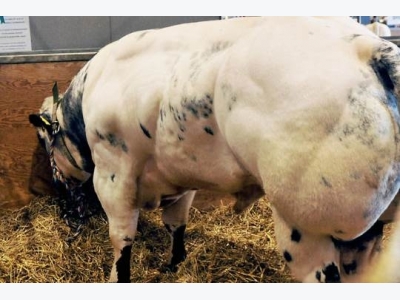New bovine tuberculosis test to detect bacteria in just six hours

Actiphage TB – a new test for bovine tuberculosis (bTB) – will soon be available from start-up PBD Biotech based in Suffolk, UK.
It brings fresh hope for the stricken dairy industry which has seen over thirty thousand cows slaughtered this year after contracting the disease.
The new test can detect live bacteria in blood or milk in just six hours, allowing affected cattle to be identified quickly before the infection spreads.
The test is based on research conducted at the University of Nottingham by Drs Cath Rees and Ben Swift, co-founders of PBD Biotech. Dr Rees explains: “The existing skin test is based on the animal’s immune response, and takes three days to produce a result, but more worryingly is known to miss about 20% of infected animals.
“Our new test is unique as it is the only test that directly detects live bacteria in blood or milk and is fast, specific and highly sensitive. Additionally the test can distinguish between a vaccinated and an infected animal (DIVA test) paving the way for new types of disease control in the future when vaccines are available.”
PBD Biotech has been successful in raising finance to create and manufacture test kits based on the phage technology developed by Dr Rees.
Although unlicensed at present for commercial use, the test kits are available for research and validation studies, which are vital for approval by Defra and other global authorities.
In the UK, results from a trial in the West Country have proved promising. Devon Vet Dick Sibley was given permission earlier this year to complete his trials on a working dairy farm.
He tested for bTB in blood, milk and faeces and found that the phage test was able to detect infection months before the skin test gave a positive result.
This showed that cows previously labelled as healthy using the skin test were actually carriers of the bacteria, potentially transmitting it to other animals in the herd and also to calves at birth.
By introducing strict biosecurity and hygiene regimes, and using the phage test and faeces PCR tests to identify high-risk animals, Sibley has managed to start to reduce levels of bTB from this herd, leading to the first clear skin test results for five years.
Related news
 Swiss agriculture reduces antibiotics usage by half
Swiss agriculture reduces antibiotics usage by half The use of antibiotics in the Swiss agriculture sector has been cut by almost half over the past decade, claims the Swiss Farmers’ Union (SFU).
 EU to lift import restrictions on Japanese agriculture products
EU to lift import restrictions on Japanese agriculture products The European Union has decided to lift its restrictions on imports of some agricultural produce from 10 prefectures.
 Belgium can export pears to Vietnam
Belgium can export pears to Vietnam As of next week the Belgian Conference pears will gain access to the Vietnamese market.